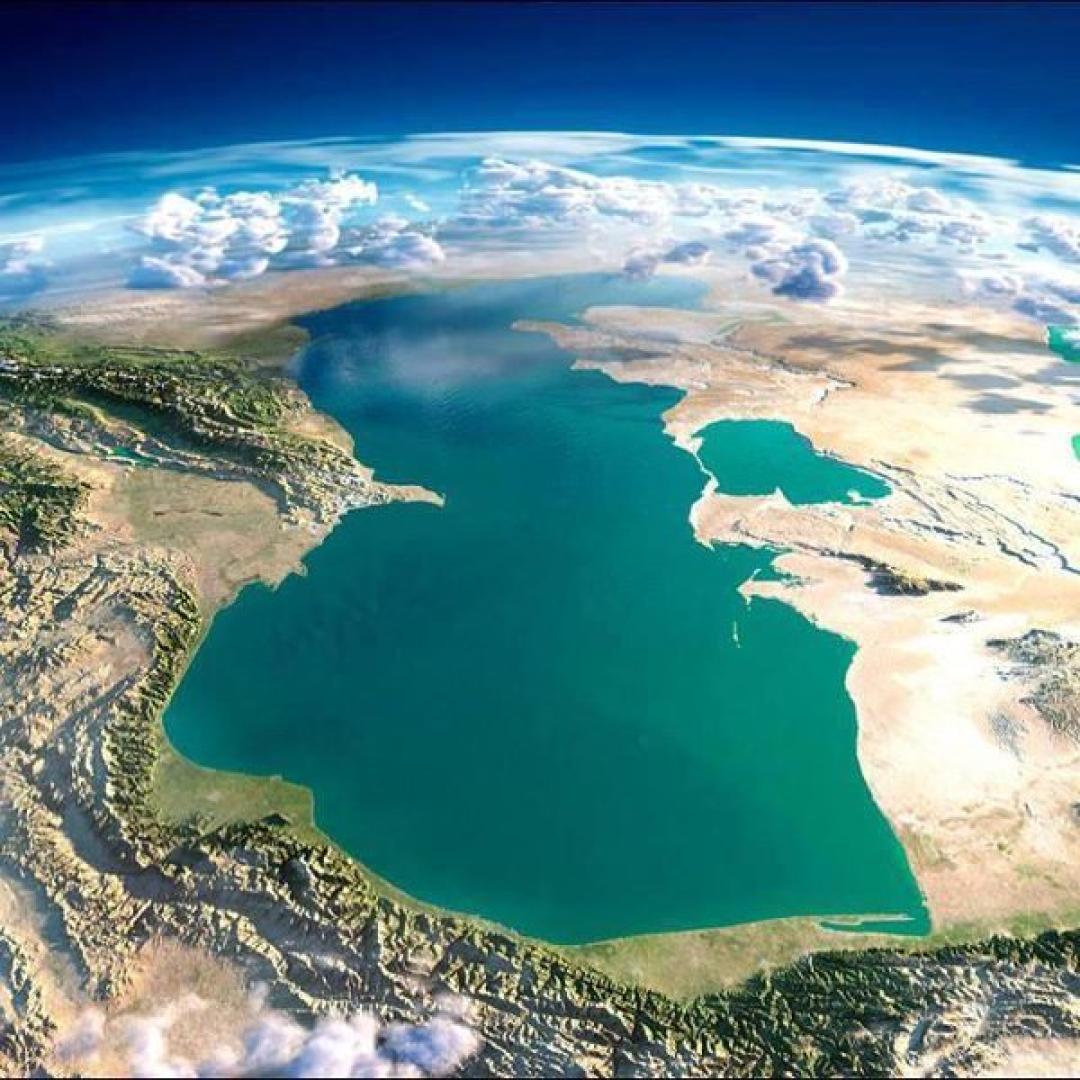
Elnur Safarov: “We Can Still Save the Caspian Sea”

The Caspian Sea is the biggest closed body of water in the world. It is an integral part of the culture, life, and livelihood of tens of millions of people. Between 1995 and 2024, it lost 1 metre and 33 centimetres of depth, as well as a surface area equal to Belgium's territory.. To understand the magnitude of the challenge, Caucasus Watch reached out to leading Azerbaijani oceanographer, Elnur Safarov. He has devoted much of his career to understanding the Caspian Sea, and he keeps reiterating that “we do not know enough.” It is clear, however, that what is happening now is reversible.
Let’s talk about your latest research.
Our latest research took place in the framework of a postdoctoral research grant funded by the Swiss Framework of Excellence at the University of Geneva. The project focuses on the impact of global climate change on the Caspian Sea and its ecosystem, particularly sea level fluctuations. Unlike many studies that rely on satellite data, we have used in-situ data collected from 1933 to the present. This comprehensive dataset allows us to examine the hydrological regime of the Volga River, which is the largest river in Europe and crucial for the Caspian Sea's water balance.
The Volga River basin covers one-third of the European part of Russia and supports 45% of the country's industry and half of its agriculture. Its main water sources going into its water flow come from snowmelt and precipitation. Our research indicates a significant decline in river runoff in recent years (2005-2020), primarily due to climate warming.
Historically, changes in the Caspian Sea level closely mirrored variations in Volga River runoff. That has not been the case since 2005. Since then, the sea level and the Volga levels have decoupled, and there are runoff variations because of the characteristics of the wind blowing over the Caspian Sea and more rapid surface evaporation. The wind is now dry, accelerating evaporation.
Our findings reveal that the Caspian Sea is losing approximately seven centimetres of water annually, translating to a loss of 225 to 300 cubic kilometres per year. Since 1995, this decline has accelerated, with a total drop of 1.33 metres by 2020. These changes have significant implications for the region's ecology and economy, necessitating urgent action to manage water resources more sustainably.
What are the reasons for this Caspian Sea level decline?
The decline in the Caspian Sea level is driven by a combination of climate change and human activity. Climate change has led to global warming, resulting in increased evaporation and reduced inflow from rivers, including the Volga. Our research shows that one-third of the water loss is attributable to these climatic factors. The warming climate has also altered wind patterns, further exacerbating evaporation rates.
Human activity, particularly the overuse of water resources, is the primary contributor to the decline. The Volga River, which supplies 80% of the Caspian Sea's inflow, has seen reduced water levels due to extensive industrial and agricultural activities along its course. These activities significantly diminish the volume of water reaching the Caspian Sea. In addition, the warmer weather increases the demand for water in agriculture, creating a vicious cycle of overuse and water scarcity.
The combined effects of these factors have led to a marked drop in the Caspian Sea level since 2005. It is critical to address both climate change and water management practices to mitigate further decline and protect the region's ecosystem.
The Caspian Sea appears to be at its lowest level for decades. Could human activity around the Volga River potentially reverse the Caspian Sea's fate?
Yes, reversing the decline in the Caspian Sea level is possible if human activity, particularly water management practices around the Volga River, improves. Historically, the Caspian Sea has experienced significant fluctuations in its level, indicating that recovery is achievable. For instance, from 1977 to 1995, the sea level rose significantly, highlighting the potential for natural and managed rebounds.
To achieve this, it is essential to enhance cooperation between the private sector and research institutions. This collaboration can improve our understanding of the water cycle, develop better forecasting models, and plan effective responses to water scarcity. Implementing sustainable water management practices, such as reducing water use in the Volga basin and adopting efficient agricultural practices, is critical.
Effective management of the Volga River's water resources could yield noticeable improvements in the Caspian Sea level within one to two years. Additionally, global efforts to mitigate climate change will play a vital role in stabilising sea level in the long term.
Can we predict when change will begin to have a tangible human impact? People rely on the Caspian Sea for farming, transport, and industry. When will these effects become more pronounced, and how much should we worry about?
Historically, the level of the Caspian has risen and fallen, mirroring the delicate balance of water inflow and outflow. Today’s changes bear a human signature — the fingerprints of climate change and our relentless impact on the environment. As a result of climate change, evaporation from the sea surface is increasing, causing the sea to lose water faster than ever before. The Volga River and other rivers, once the Caspian’s lifeblood, face their own challenges. Dams, diversions, and excessive withdrawals weaken its flow, leaving the sea parched.
The most negative impact of the sea decline has and will continue to manifest itself in the northern part of the Caspian Sea, where the sea depth is too shallow. Coastal communities depend on the Caspian Sea for food. Fishing boats remain idle as water levels drop. Coastal infrastructure is under strain as the sea recedes, disrupting supply chains and potentially jeopardising livelihoods.
What is required is research, monitoring, and international cooperation, which are the best ways to save the future of the Caspian Sea. COP29 (29th Conference of the Parties of the UNFCCC) in Baku is a chance to find the optimal solution. It is necessary to direct all efforts toward the long-term forecasting of changes in the level of the Caspian Sea. The joint efforts of scientists, politicians, and other segments of the population can prevent the Caspian Sea from being reduced to a memory. Our duty is to preserve its beauty, uniqueness, and vitality for future generations.
Interview conducted by Ilya Roubanis
See Also


Irina Mamulashvili: Electoral Interference is a Playbook, not a Recipe

Giorgi Gakharia: The EU Should Engage Georgia Despite Its Democratic Backsliding

Peace or Capitulation? Shahverdyan on Armenia-Azerbaijan Agreement and the Nagorno-Karabakh Crisis

Ali Mousavi Khalkhali: Iran Will Avoid Conflict in the Caucasus

